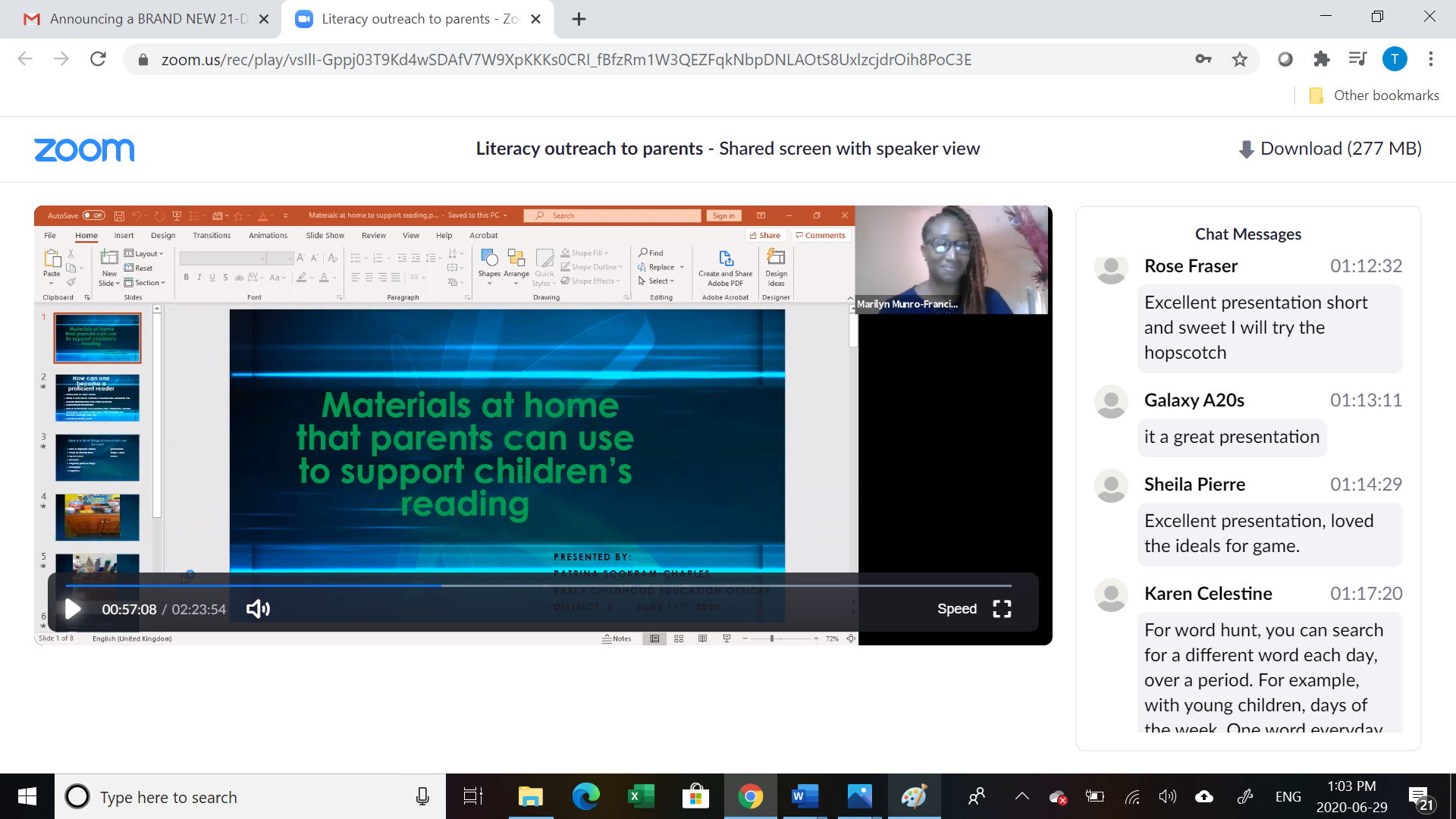Outreach to 480 Parents in Grenada to Support Early Grade Reading and Learning at Home!
OECS/USAID Early Learners Program (ELP) Media Release
As parents have been challenged to play a more pivotal role in children’s at home learning, the Early Learners Programme (ELP) and the Early Childhood Education Department in Grenada’s Ministry of Education (MOE) offered guidance and support to parents. On June 17th and 24th, 2020, both departments of Grenada’s MOE collaborated to host an online video presentation series entitled “Literacy Outreach to Parents.” Over 480 parents joined the calls seeking guidance on how to better support their children with reading and learning at home.
Presentations included “Tips on Coping for Parents and Students” by Carriacou School Counsellor Nadina Williams; “How Parents Can Support Oral Development” by ELP Coordinator Lynette Isaacs; “The Joy of ‘Read Alouds’” by ELP Coordinator Natalie Pierre-Calliste; and “How to Set Routines” by Nicurl Fletcher-Newton, an early childhood education officer. The sessions lasted well over three hours due to questions posed by parents on the presentations. Parents asked for a follow up session on using reading materials in the home and an open question and answer session with a school counsellor, among other topics. The ELP and the Early Childhood Education Department are working to facilitate additional sessions.
Speaking about the series, ELP National Focal Point – Karen Celestine said,
“The session participation exceeded our expectations. Based on simple flier promotion on social media, it was exciting to see such a tremendous turnout with over 50 persons joining the call before the start time. There was a wide cross section of parents from both public and private schools at different socio-economic levels. It was evident that parents needed this intervention. We were very happy to facilitate and guide parents – who in turn are now better equipped to support their children at home.”
One parent – Mr. Dwight Williams - was pleased to participate and said,
“The information was quite useful and refreshing. Although I knew some aspects of the content, it was good to get clarification, and obtain new information to support my wife and children with at home learning. My biggest take away from the two sessions was that every child can learn. Even when parents may have doubt about their child’s ability - they can learn – and this made me very hopeful for children throughout Grenada!”
This activity is consistent with the OECS/USAID ELP COVID-19 Response strategy which includes providing support to parents and families for engaging students at home with reading.
About OECS/USAID ELP:
OECS/USAID Early Learners Programme is a Programme within the Education Development Management Unit of the OECS Commission and was established in March 2015 to improve the reading skills of children in the early primary grades with the goal of providing a foundation for improved learning outcomes and enhanced opportunities for students in the six (6) independent Member States of the OECS (Antigua and Barbuda, The Commonwealth of Dominica, Grenada, Saint Lucia, St. Kitts and Nevis and St. Vincent and the Grenadines).
To date the ELP has achieved a number of tangible outputs with over 17,000 learners reached at the Primary level, over 1500 Grades K to 3 teachers supported through job embedded professional development, 1426 lessons observed and 1031 coaching sessions with teachers have been completed by ELP Coordinators. Further, 60 schools across the Member States have received development grants to support reading enhancement projects and 173,114 teaching and learning materials have been provided to 750 classrooms across the OECS. The OECS/USAID ELP will run through to September 2020 continuing to develop and implement impactful initiatives that advance early grade reading throughout the OECS.

